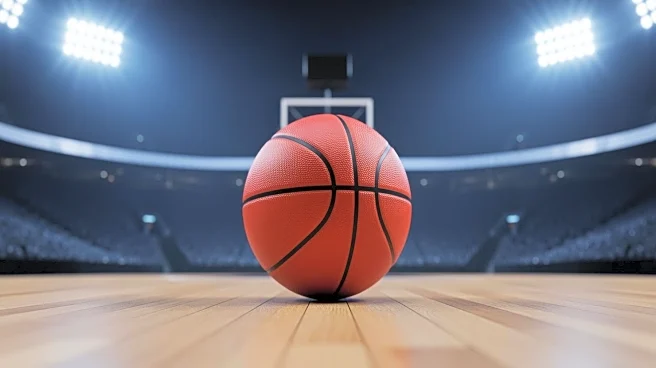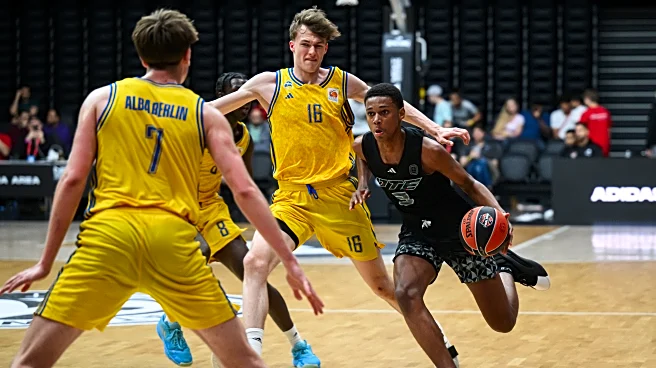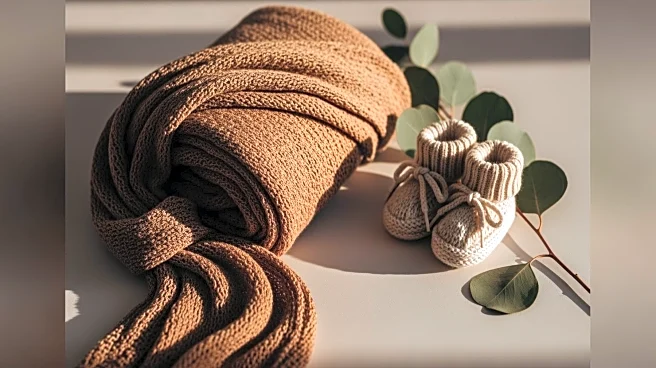What's Happening?
Mouhamed Gueye, a player for the Atlanta Hawks, will not participate in the team's preseason game against the Houston Rockets due to rest. This decision was reported by Kevin Chouinard from the Hawks' official site. Gueye's absence is part of a strategic
move to ensure he is well-rested for the upcoming regular season. The Hawks are preparing for their season opener against the Toronto Raptors, where Gueye is expected to return to the lineup. This preseason game marks the final opportunity for the team to assess their roster and strategies before the regular season commences.
Why It's Important?
The decision to rest Mouhamed Gueye highlights the importance of player management and health in professional sports. By prioritizing rest, the Hawks aim to optimize Gueye's performance and longevity throughout the demanding NBA season. This approach reflects a broader trend in sports where teams increasingly focus on player wellness to prevent injuries and enhance performance. Gueye's absence in the preseason game may impact the team's ability to test certain strategies, but it underscores the team's commitment to maintaining a healthy roster for the regular season.
What's Next?
Following the preseason finale, the Atlanta Hawks will shift their focus to the regular season, starting with their opener against the Toronto Raptors. Gueye is expected to be part of the starting lineup, bringing his skills and energy to the court. The team will continue to monitor player health and performance, adjusting strategies as needed to ensure a successful season. Fans and analysts will be watching closely to see how the Hawks perform with a rested and ready roster.
Beyond the Headlines
The decision to rest players like Mouhamed Gueye during preseason games may influence other teams in the NBA to adopt similar strategies. This could lead to a shift in how preseason games are approached, with more emphasis on player health and less on immediate performance. Additionally, it raises questions about the balance between competitive play and player welfare, potentially sparking discussions on how best to manage athlete health in professional sports.
















